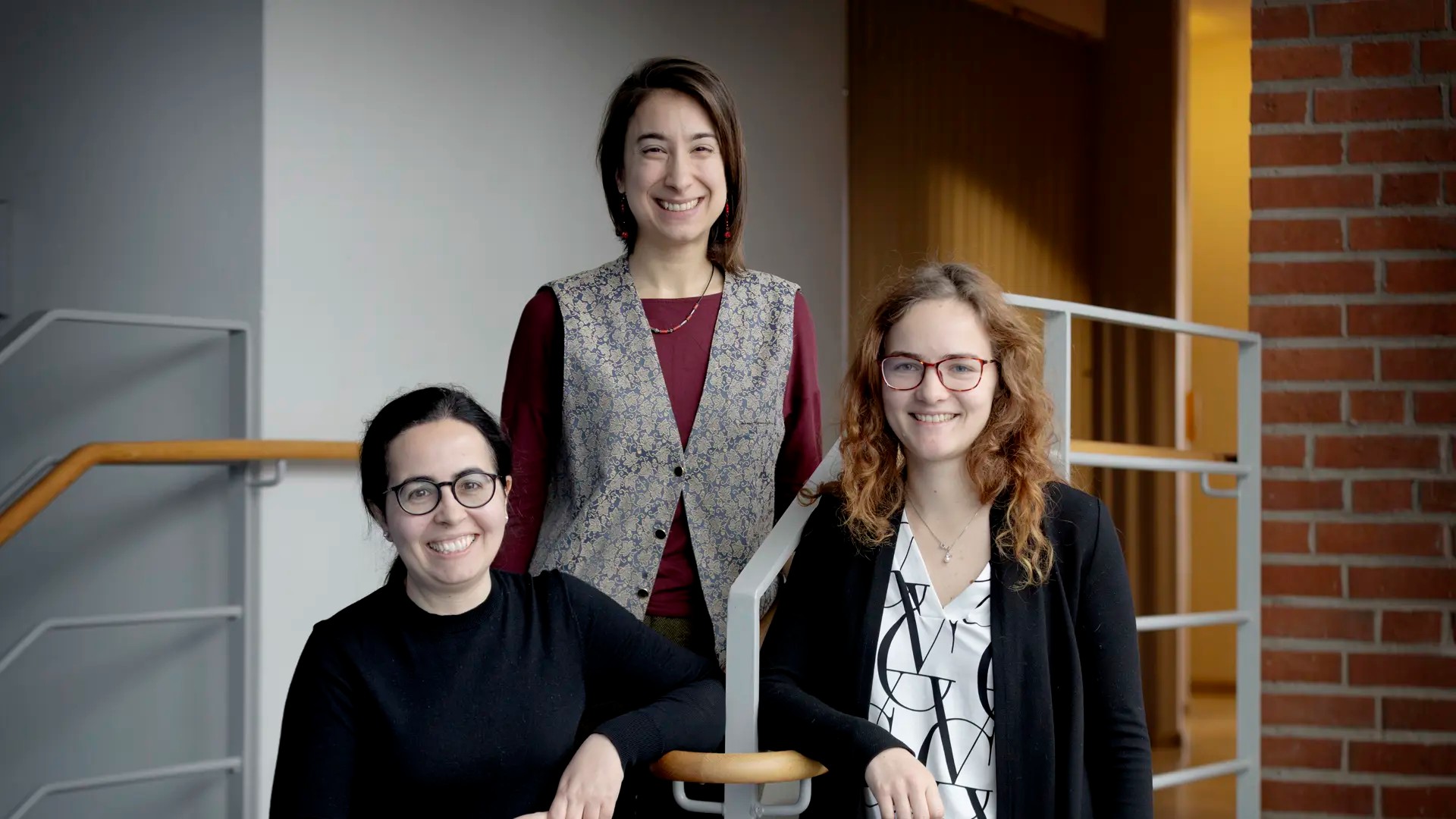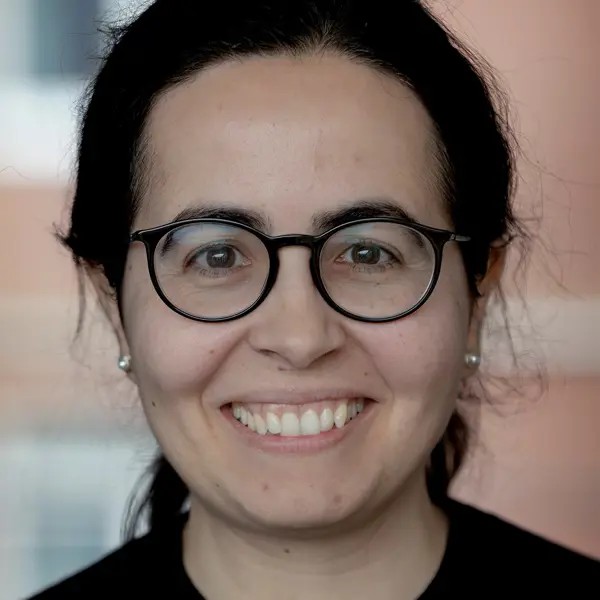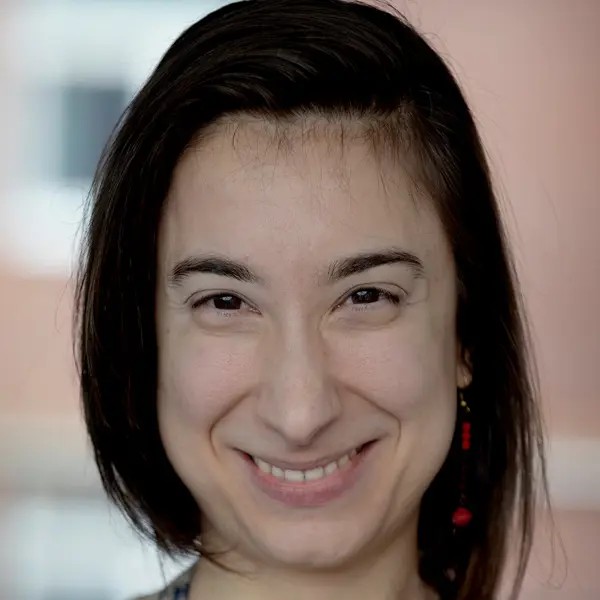
In a male-dominated university like Chalmers, it can be difficult to find female role models, especially in senior positions. This is what the WISE-WACQT mentoring programme wants to address. For over three years, the programme has brought junior and senior researchers together in empowering and inspiring meetings.
“We have to do our best not to lose women along the way,” says Silvia Muceli, one of the organisers.
Being the only woman in one’s field of research. Having more lecturers called Henrik than lecturers who are women. Working high up in a university building where there is only one toilet for women – on the ground floor.
These are some of the experiences that Chalmers employees Julia Järlebark, doctoral student in Applied Chemistry, and Emma Minarelli, postdoc in Applied Quantum Physics, bring with them from either Chalmers or other universities of technology around the world. Both are used to working in environments with few women, and think it is important that Chalmers should strive to create an inclusive environment with a more equal gender balance – especially in senior positions.
“If you are a woman, it is difficult to feel that you belong in that environment when you see that all professors are men. We need role models, people to identify with, share experiences with and have trusting, open discussions with,” says Julia Järlebark.
Supporting women early in their careers
This is precisely the focus of the WISE-WACQT* mentoring programme, where Julia Järlebark and Emma Minarelli are two of the mentees. The programme is supported by Chalmers’ equality initiative Genie and aims to empower women who want to advance in academia or industry, if that is their aspiration. The target group is female doctoral students and postdocs from the Department of Electrical Engineering, from the WACQT research programme or within the Nano Area of Advance.

Every year since 2020, the mentoring programme has matched around 30 women in senior research positions with female doctoral students and postdocs to create opportunities for the exchange of ideas, career coaching or to discuss challenges. The mentors and junior researchers come from different departments to pave the way further for new perspectives.
“This initiative was born out of a frustration that there is such a discernible gap between men and women in senior positions at Chalmers as well as at many other universities of technology. That is why we wanted to do something for women who are at an early stage of their academic career. Inspiration and positive examples are important, whether the choice is to stay in academia or move to industry,” says Silvia Muceli, Associate Professor in Neural Engineering.
Inspiration and new perspectives
Silvia Muceli is a member of the organising committee and has been involved from the start, both as a mentor and in developing the programme. Many continue in the mentorship programme year after year, and now the organisers also receive requests for participation from other Chalmers departments.
“We find that the program is very popular. Even if everyone has a supervisor in their department, there are many benefits to being able to have confidential conversations with someone outside your area,” she says.
Julia Järlebark, who is in her second year in the programme, agrees with her.

“Last year, I had a mentor from another department, and that really gave me a different insight into academia. This year I wanted to get an insight into industry, so I had the opportunity to meet a mentor from industry who has previously worked at Chalmers. It has been extremely useful to be able to talk freely with someone outside of my work environment, to get career inspiration and tips on how to deal with different challenges and situations such as conferences,” says Julia Järlebark.
Guidance in a world of intense expectations
Emma Minarelli also appreciates the meetings with her mentor. For her, the initiative was a positive surprise when she arrived at Chalmers just over a year ago.
“I had studied and worked at universities in five different countries before coming here, but I had never come across such a mentoring programme before. It is excellent that Chalmers has this,” she says.
She points out that the time spent as a postdoc is often characterised by stress, uncertainty and having to meet demanding requirements in order to advance in one’s career, and that it is therefore particularly valuable to have a mentor.

“We talk about everything from research funding and the work environment to career paths and how to identify a research focus of one’s own. Since I work in a completely male-dominated research environment, it is nice to have a female colleague to discuss things with. She is always quick to make herself available if I ask for a meeting, and that means a lot to me as well,” says Emma Minarelli.
Valuable for the mentors as well
Silvia Muceli emphasises that the programme is also very rewarding for the mentors.
“It is extremely valuable to hear the views and perspectives of a junior colleague. Mentoring often develops into a meaningful relationship that involves much more than giving or receiving advice on different issues. These are discussions on an equal footing where experiences are shared and everybody gets something back,” she says.
According to Silvia Muceli, Emma Minarelli and Julia Järlebark, the growing interest in the mentoring programme highlights an important need. They hope that more departments will be inspired by the WISE-WACQT mentoring programme and may have the opportunity to launch similar initiatives.
“It is a societal problem that so many women are being lost on the way to leadership positions. That is why we must give support to those who are here at Chalmers now,” they say.
More about the WISE-WACQT mentoring programme
The aim of the WISE-WACQT mentoring programme is to provide support to female doctoral students and postdocs from the Department of Electrical Engineering, from the WACQT research programme or within the Nano Area of Advance. The idea is to create meetings and exchanges between senior and junior researchers working in different departments at Chalmers. The programme is supported by the Gender Initiative for Excellence at Chalmers – GENIE.
These are the organisers:
WISE – Workforce for Inclusive Science – is a network that aims to support, inspire and encourage a gender-neutral academy. The Department of Electrical Engineering hosts the network.
EDI-WACQT is an initiative of the Wallenberg Centre for Quantum Technology (WACQT), which aims to promote equality and diversity and to address discrimination.
“Leaky pipeline” – the proportion of women in senior positions is decreasing
With the exception of the research assistants category, the proportion of women at Chalmers decreases the more senior the positions are in the organisation.
Statistics from January 2024 – the proportion of women in different job categories at Chalmers:
Doctoral students: 36 per cent
Post docs: 27 per cent
Assistant professors: 48 per cent
Lecturers: 25 per cent
Senior lecturers: 20 per cent
Professors: 26 per cent
Full professors: 20 per cent